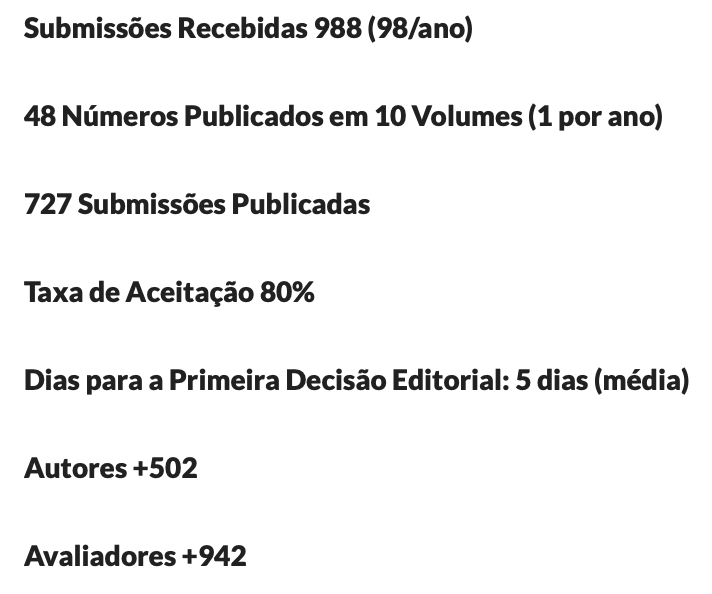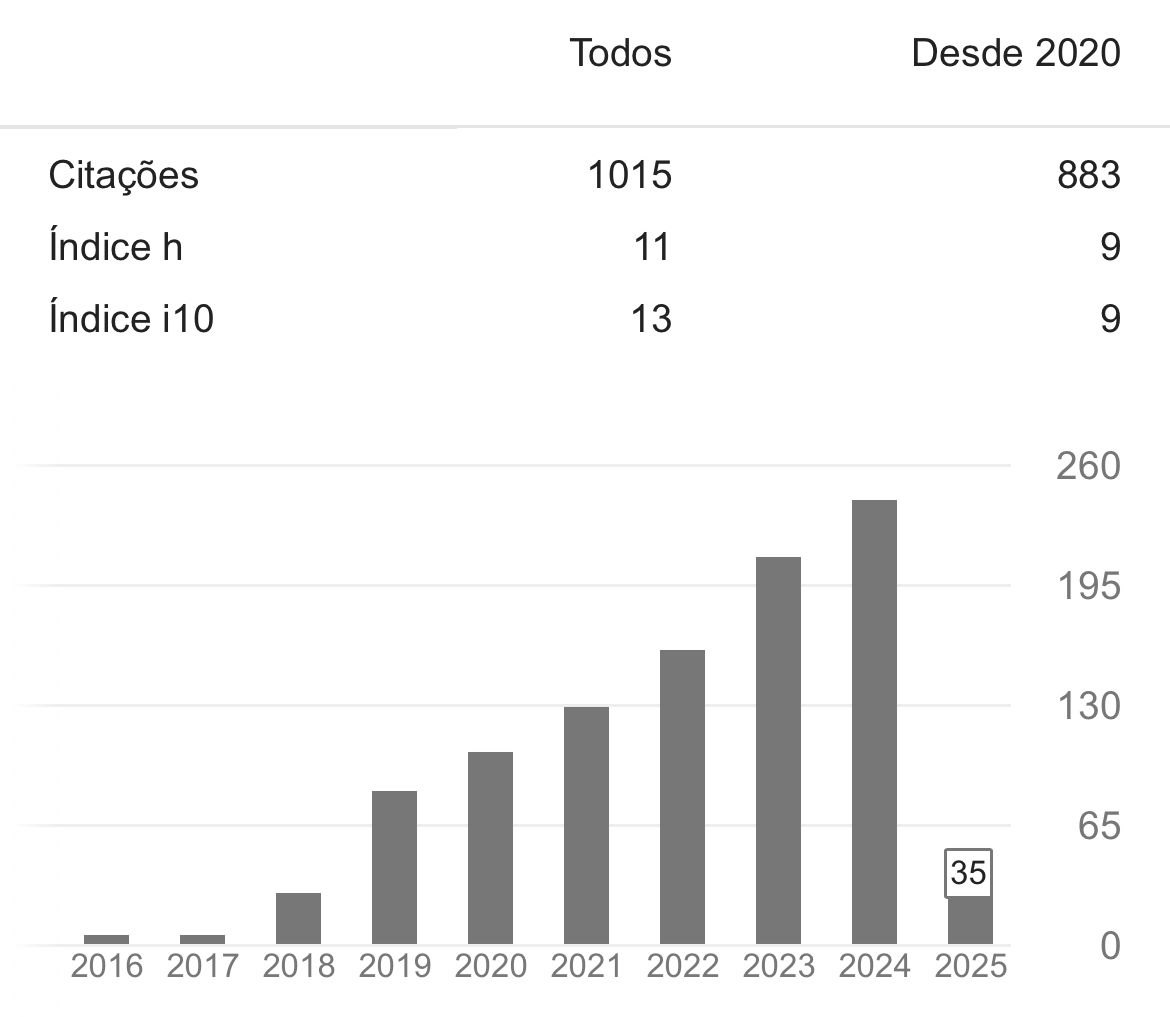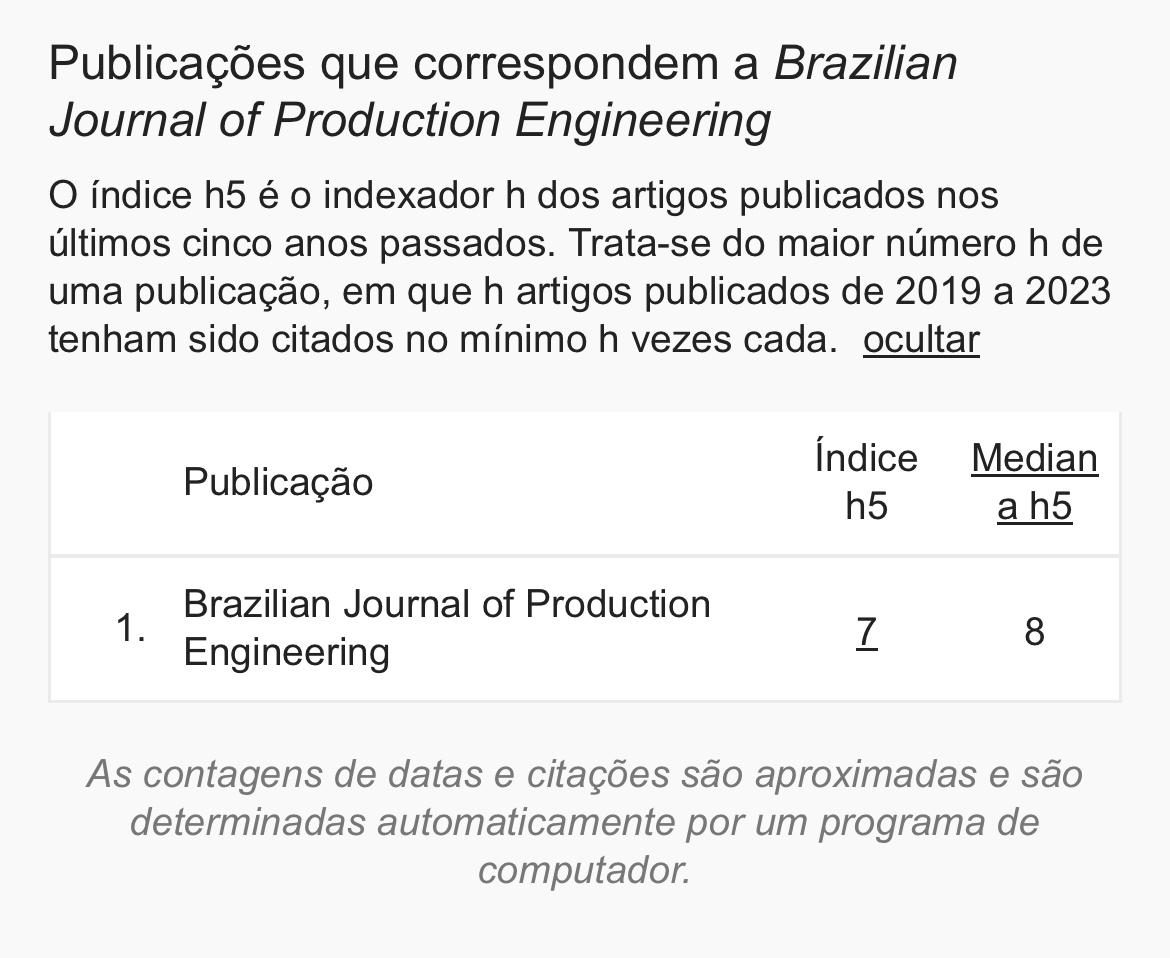Relationship between different aspects of leadership and motivation
DOI:
https://doi.org/10.47456/bjpe.v7i5.36250Keywords:
Acknowledgment, autonomy, feedback, motivation, lidershipAbstract
Leadership is able to influence follower’s behavior, involving different aspects of their motivation. Thus, this research correlates leadership and motivation, based on questionnaires whose answers were structured by the Likert scale. Sixty-one people were interviewed, mostly aged 25 to 45 years old, working in different institutions and under different leaderships. All correlations were positive. Highest correlations, although less than 0.5, were computed between autonomy versus recognition feelings; receiving feedback versus appreciation and recognition feelings; leader control versus appreciation and recognition feelings and, finally, identification with leader's principles versus importance feeling. Recognition and appreciation feelings tend to be stronger when there is autonomy and feedback, in addition to leadership control of who is carrying out the activities. There is also a need to identify with the leader's principles for to develop recognition and appreciation feelings, and, especially, for valuing the work.
Downloads
References
Belohlavek, P. (2006). Como Manejar Problemas Complexos: Uma abordagem ontológica unicista (1a ed.). Buenos Aires: Blue Eagle Group.
Bonome, J. B.V. (2009). Princípios de Administração (1a ed.). Curitiba: Inteligência Educacional e Sistemas de Ensino IESDE Brasil.
Chiavenato, I. (2004). Introdução à teoria geral da administração (7a ed). Rio de Janeiro: Elsevier.
Coates, J., & Breeze, C. (2000). Delegar Tarefas com Segurança (1a ed.). São Paulo: Nobel.
Covey, S. R. (2002). Liderança baseada em princípios (10a ed). Rio de Janeiro: Campus.
Escarce, A. G., Lemos, S. M. A., & Carvalho, S. A. S. (2017). Correlação entre aspectos de satisfação e o trabalho de fonoaudiólogos de uma rede de saúde auditiva. Revista CEFAC – Speech, Language, Hearing Sciences and Education Journal, 19(6), 756-763. https://doi.org/10.1590/1982-021620171966117
Ferreira, A. (2006). Fatores de motivação no trabalho: o que pensam os líderes. (Dissertação de Mestrado). Instituto de Ciências Humanas e Sociais, Universidade Federal Rural do Rio de Janeiro, Seropédica, RJ, Brasil.
Hammer, Ø., Harper, D. A. T., & Ryan, P. D. (2001). Past: Paleontological Statistics software package for education and data analysis. Paleontologia Electronica, 4(1), 1-9.
Hiriyappa, B. (2018). Gestão de Motivação e suas teorias. Babelcube Inc. ISBN B07CYJDQR7.
Hunter, J. C. (2010). O Monge e o Executivo: Uma História sobre a essência da liderança (1a ed). Rio de Janeiro: Sextante.
Jones, G. R., & George, J. M. (2012). Fundamentos da Administração Contemporânea (4a ed). Porto Alegre: AMGH Editora LTDA.
Krausz, R. R. (2007). Coaching executivo. A conquista da liderança (1a ed). São Paulo: Nobel.
Maçães, M. A. R. (2018). Manual de Gestão Moderna: Teoria e Prática (2a ed). Coimbra: Conjuntura Actual Editora.
Mendes, A. M., & Tamayo, A. (2001). Valores organizacionais e prazer-sofrimento no trabalho. Psico-USF, 6(1), 39-46.
Missel, S. (2016). Feedback corporativo: como saber se está indo bem (2a ed). São Paulo: Editora Saraiva.
Mcshane, S. L., & Glinow, M. A.V. (2014). Comportamento Organizacional: Conhecimento emergente. Realidade global (6a ed). Porto Alegre: AMGH Editora Ltda.
Murray, K. (2012). A linguagem dos líderes: como os principais CEOs se comunicam para inspirar, influenciar e obter resultados. São Paulo: Clio Editora.
Pereira, M. C. B. (2014). RH Essencial: Gestão estratégica de pessoas e competências (1a ed). São Paulo: Saraiva.
Rosas, M. L. M., & Moraes, R.D. (2011). A importância do reconhecimento no contexto de trabalho. Humaitá, 7(2), 210-224.
Sá, M. A. D., & Lemoine, C. (1998). O estilo de liderança como fator de comprometimento na empresa. Anais do Encontro Anual da Associação Nacional dos Programas de Pós-Graduação em Administração, Foz do Iguaçu, PR, Brasil, 22.
Sosnowski, A. S. (2018). Empreendedorismo para leigos (1a ed). Rio de Janeiro: Alta Books.
Vieira, M. M. F., Knopp, G. C., Rolim, H. L., Simões, J. M., & Darbilly, L.V.C. (2012). Teoria Geral da administração (1a ed). Rio de Janeiro: Editora FGV.
Voigtlaender, K., Beiler, G., & Walkowski, M. (2011). Liderança e motivação nas organizações. Anais do Congresso Virtual Brasileiro de Administração, São Paulo, SP, Brasil, 8.
Downloads
Published
How to Cite
Issue
Section
License
Copyright (c) 2021 Brazilian Journal of Production Engineering - BJPE

This work is licensed under a Creative Commons Attribution-NonCommercial-ShareAlike 4.0 International License.

















































































